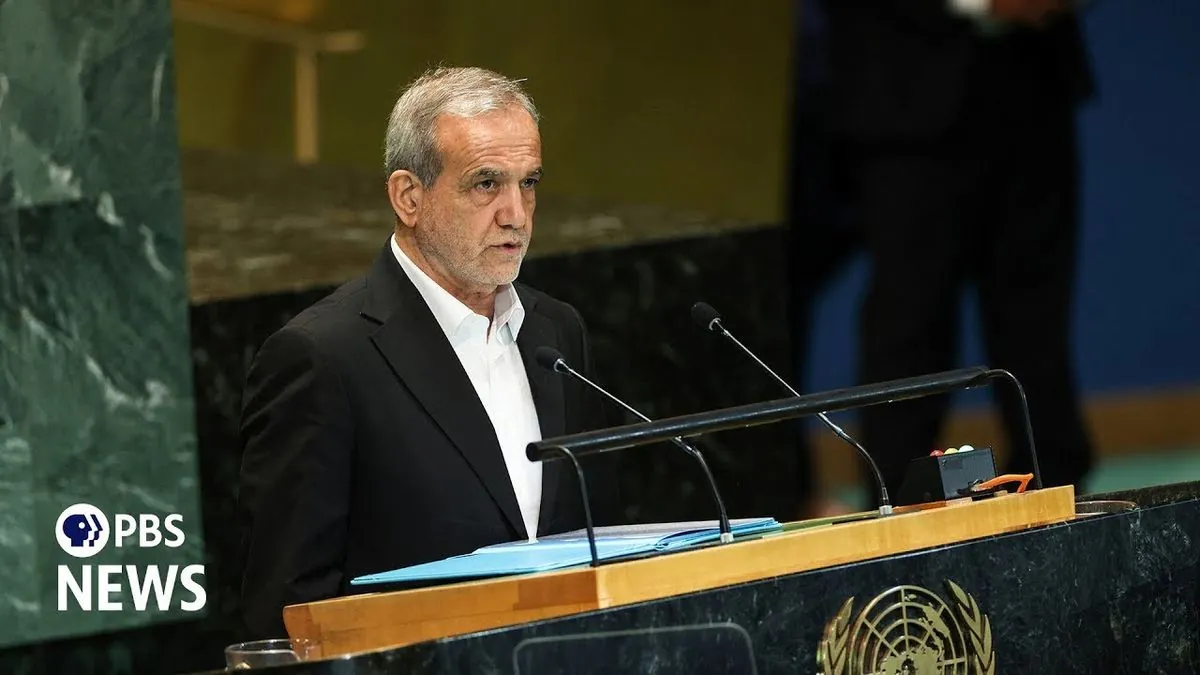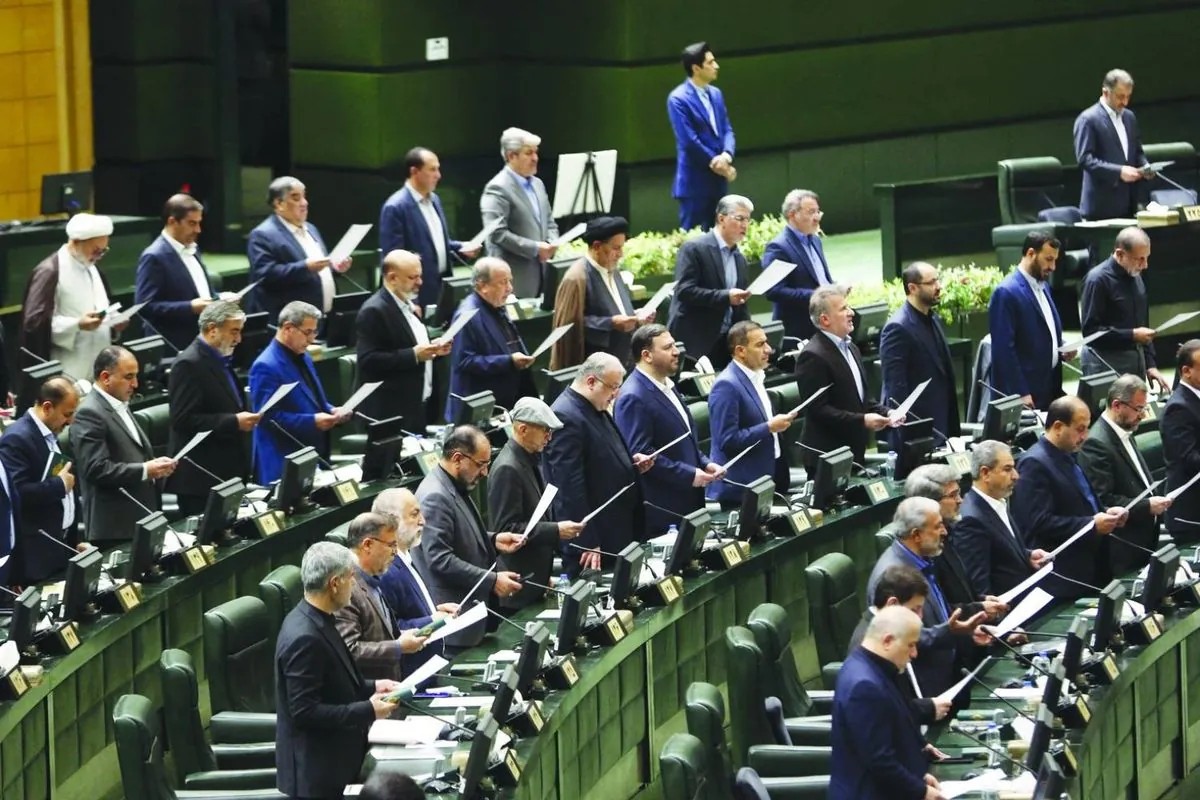Iran's New President Seeks Diplomacy Amid Regional Tensions
Iran's reformist President Pezeshkian calls for sanctions relief at UN, signaling readiness for nuclear talks. Domestic critics oppose diplomatic approach as regional tensions escalate.

In a significant diplomatic move, Masoud Pezeshkian, Iran's newly elected reformist president, addressed the United Nations General Assembly on September 24, 2024. His message was clear: sanctions are not the answer to Iran's challenges; instead, fulfilling previous commitments to lift sanctions and improve economic conditions for Iranians is the path forward.
Pezeshkian's speech referenced the Joint Comprehensive Plan of Action (JCPOA), the nuclear deal signed in 2015 that limited Iran's nuclear capabilities in exchange for sanctions relief. Despite its current dormant state, Pezeshkian and his team of experienced negotiators have indicated a willingness to either revive the original agreement or construct a new one.
The JCPOA, initially viewed as more than just a nuclear deal, was seen as a potential gateway to resolving broader US-Iran disputes in the region. Even Ayatollah Ali Khamenei, Iran's Supreme Leader since 1989, had suggested in 2015 that a successful nuclear agreement could lead to discussions on other issues.
Pezeshkian's election, while not meeting the standards of democratic elections in leading countries, reflects ongoing debates within Iran's political establishment and society. His platform, emphasizing de-escalation and pragmatic diplomacy, has resonated with segments of the political elite and public who recognize the costs of prolonged confrontation with the West.

Notably, Pezeshkian has managed to secure support from some conservative forces. His proposed cabinet, including Foreign Minister Abbas Araghchi, a key figure in previous nuclear negotiations, was approved by the conservative-majority parliament. This fragile consensus suggests there may be room for diplomacy under Pezeshkian's leadership.
At the UN General Assembly, Pezeshkian and his team emphasized Iran's readiness for diplomatic de-escalation. Mohammad Javad Zarif, former foreign minister and now vice president for strategic affairs, highlighted Iran's restraint despite provocations, citing the August 1, 2024 assassination of Hamas leader Ismail Haniyeh in Tehran as an example.
However, Pezeshkian faces growing pressure from hardliners at home. Critics have sharply condemned his diplomatic outreach and reappointment of key JCPOA negotiators. One conservative analyst remarked, "Pezeshkian's remarks about disarmament in New York are naive and a source of national shame."
"What role do individuals like Zarif, who are intimidated by the U.S., play in such humiliation?"
The stakes are high for the West to engage with Pezeshkian's government. Iran continues to advance its nuclear program, which began in the 1950s under the Atoms for Peace program. The region remains tense, with the potential for escalation into a wider conflict involving Iran, its neighbors, and global powers.
Despite the upcoming US elections in November 2024 and political controversy surrounding engagement with Iran, diplomatic groundwork can still be laid. The Biden administration and its allies can work with the International Atomic Energy Agency (IAEA), established in 1957, to explore pathways for de-escalation through European intermediaries.
The US and Iran have not had formal diplomatic relations since 1980, and the US imposed its first sanctions on Iran in 1979 during the hostage crisis. Since then, the UN Security Council has passed multiple resolutions regarding Iran's nuclear program since 2006.
Engaging with Pezeshkian's government, even in small ways, can help build momentum for diplomacy once the political climate allows for more substantive talks. For those committed to preventing a nuclear-armed Iran and avoiding regional escalation, the time to act is now.


































